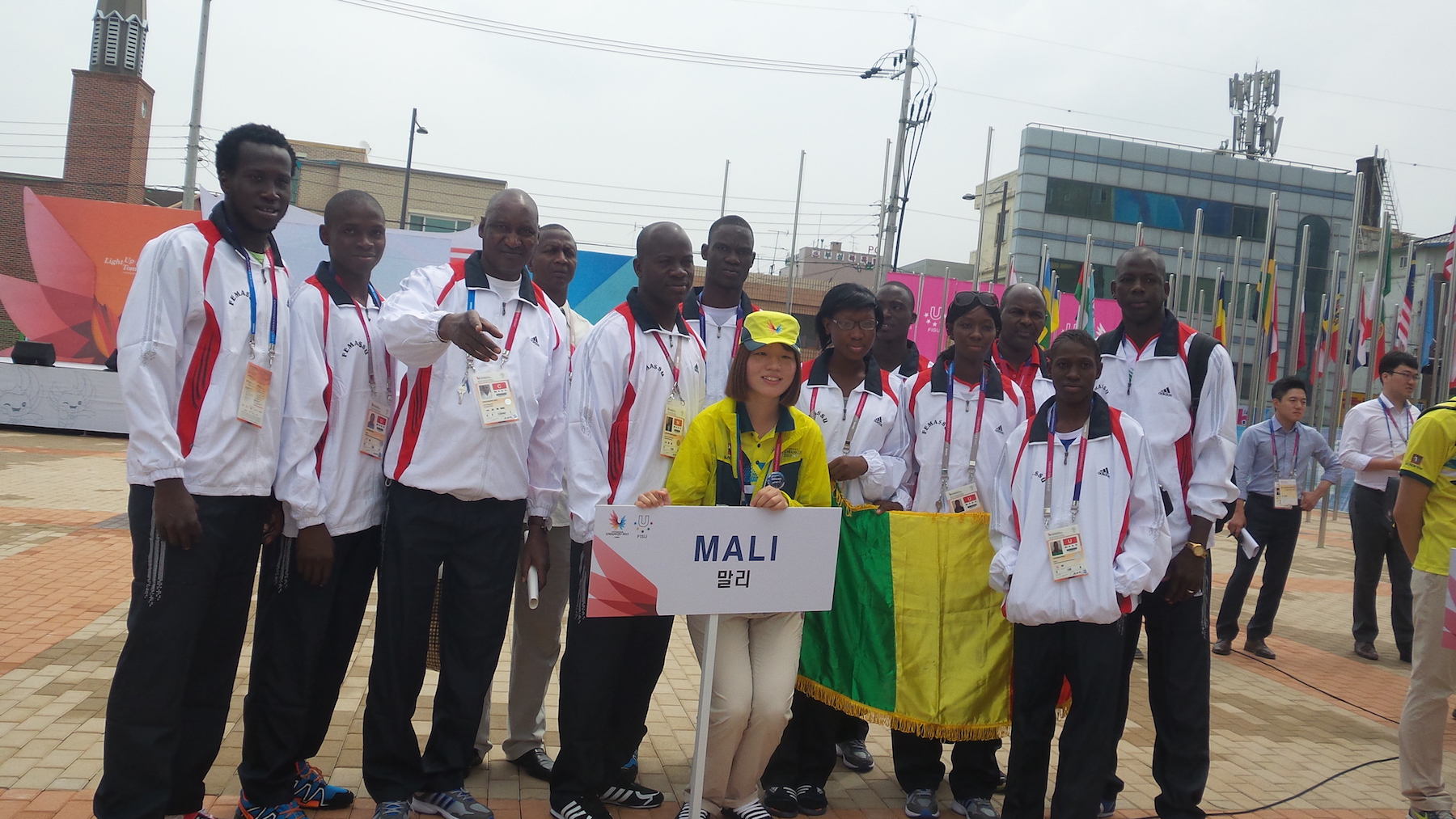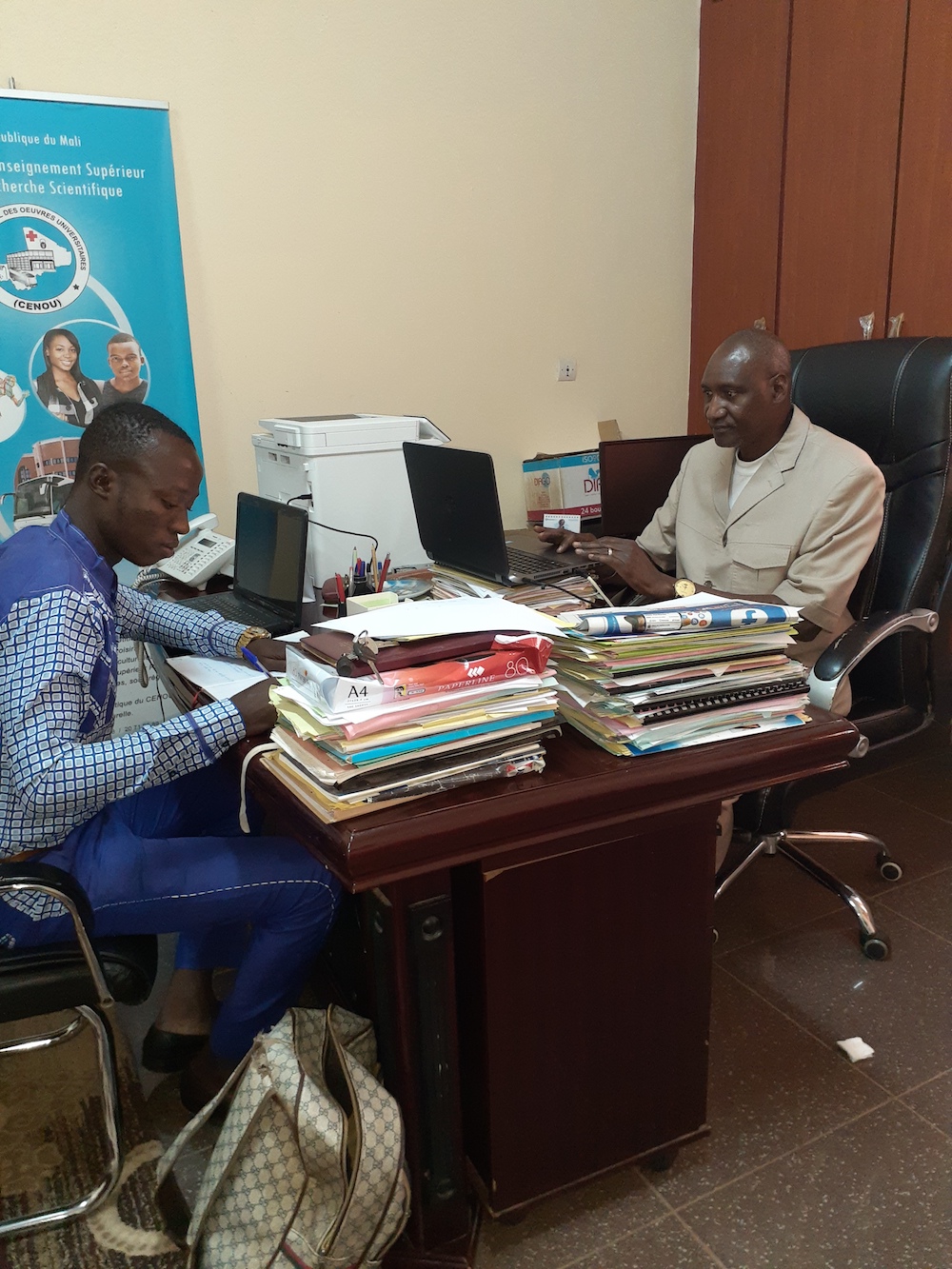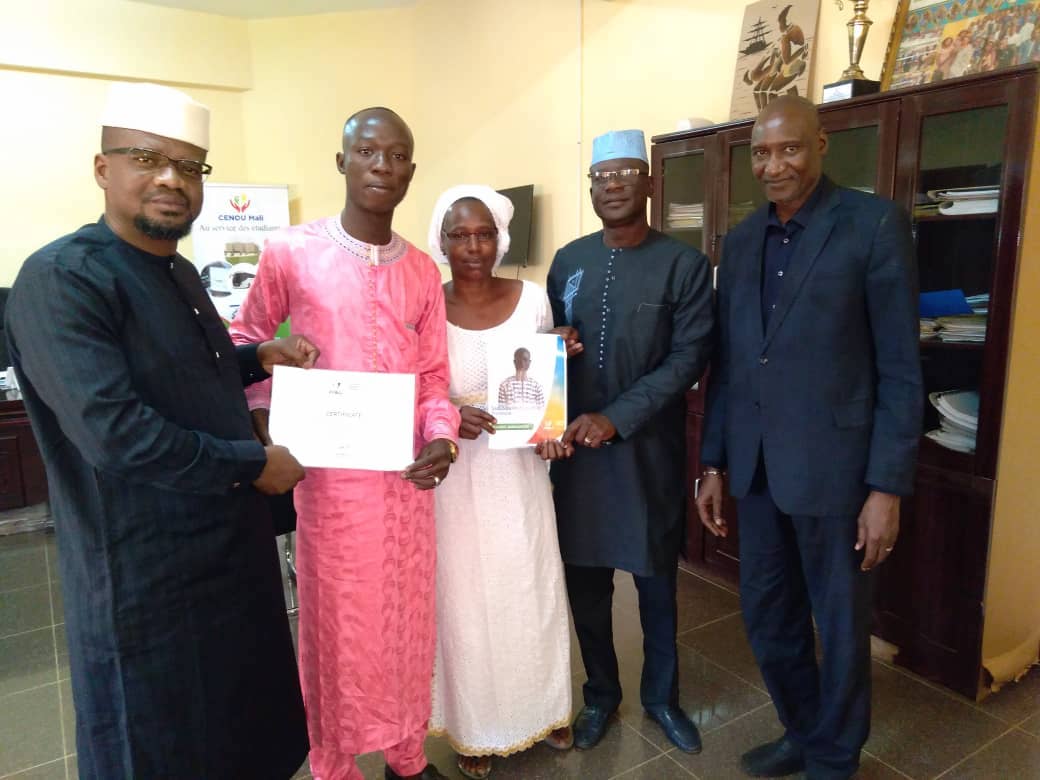
The FEMASSU (Fédération Malienne de Sports Scolaires et Universitaire) was founded on 14 August 2014 in Sikasso, by three Ministries; Ministry of Higher Education, Ministry of National Education and the Ministry of Sports.
 Before the creation of FEMASSU, university sports in Mali functioned under the organisation called CENOU (Centre National des Oeuvres Universitaire). It was under the umbrella of CENOU that Mali participated in the Kazan 2013 Summer Universiade. However, after the creation of FEMASSU in 2014, student-athletes and officials from Mali participated in the Gwangju 2015 Summer Universiade.
Before the creation of FEMASSU, university sports in Mali functioned under the organisation called CENOU (Centre National des Oeuvres Universitaire). It was under the umbrella of CENOU that Mali participated in the Kazan 2013 Summer Universiade. However, after the creation of FEMASSU in 2014, student-athletes and officials from Mali participated in the Gwangju 2015 Summer Universiade.
“We fielded participants in athletics, taekwondo and tennis, among other events,” said FEMASSU Vice-President Mama Ibrahima Toure, speaking to Sadickou Mahamadou Dembele, FISU Student Ambassador for Mali.
Toure told Dembele about the people who were key in the creation of FEMASSU, namely: President: Boubacar Traore, the Vice-President himself, Secretary General Youssouf Z Coulibaly, Chairman of the Technical Committee Djibril Drame, Vice General Treasurer Hawoye Cissé and Vice Secretary of the organisation Dr Sambi Khalil Magassouba.
Today, FEMASSU reaches 15 higher education institutions, including the Association of Private Universities, with access to about 18,000 students. The interactions with students and universities is done mainly via social networks, direct email, and information relays through focal points in each each university structure.
“The types of information that FEMASSU communicates with students is mainly about the functioning of our organisation, activities related to FISU, FASU and FASS, as well as other sports and cultural activties,” said Toure. “Our objective is to make FEMASSU and FISU visible within the student population of Mali as well as outside of Mali.”
 “Through meetings with the ministers responsible for Higher Education and Sports, we want to renew the office’s mandate for the federation and make the FEMASSU headquarters fully operational,” he added.
“Through meetings with the ministers responsible for Higher Education and Sports, we want to renew the office’s mandate for the federation and make the FEMASSU headquarters fully operational,” he added.
Over the long term, FEMASSU wants to increase participation in FISU events, and receive adequate funding from national authorities to better support their own activities.
“We would like to involve more and more students in our national (FEMASSU), continental (FASU) and international (FISU) activities,” said Toure. “Therefore, the main objective is to first manage our own internal problems, as we have not been able to participate in the World University Games since 2015 in Korea.”
“Regarding the roadmap over the next five or ten years, we really want to reform the federation after the pandemic. The added problems of the country with the military coup really prevents us from deciding or dealing with any upcoming events, but we really want to be active and make an impacts after all these obstacles are cleared.”
As far as their events are concerned, Toure mentioned the Cup of the Minister of Sports in football, the University Basketball Tournament as well as their participation in the General Assembly of the African Federation of Academic and University Sport.
“The most exciting thing is to be able to work within the FISU Board and have a delegate within FISU from our federation,” added Toure. “Also, this is the very first time that we have a nominated Student Ambassador and this can also help us be better represented within the student community and push them to fully participate to the FEMASSU’s events as well as FISU events.”